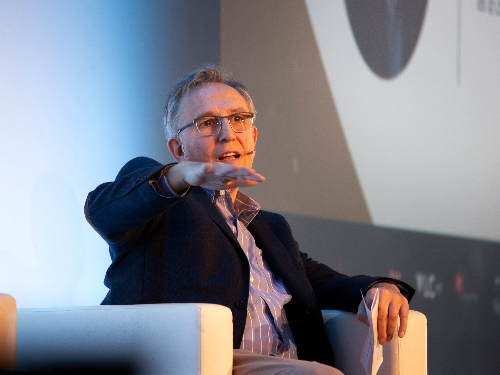
Eugenio Coronado, professor of Inorganic Chemistry at the University of Valencia and director of the Institute of Molecular Science (ICMol), has been appointed national coordinator of the spanish Complementary R&D&I Programme on Advanced Materials. Promoted by the spanish Ministry of Science with the support of the regional governements, the programme aims to develop key research areas related to the European recovery strategy and the Spanish Government's Recovery, Transformation and Resilience Plan.
The Advanced Materials programme is one of the four major programmes in which research centres in the región of Valencia will participate, but the only one that will be coordinated by a researcher from Valencian universities. In this case, Professor Coronado will coordinate the work of centres in Catalonia, region of Madrid, the Basque Country, Aragón, Castilla y León and the Valencian region itself over the next three years.
The plenary session of the Valencian governement has just approved the agreement between the Regional Ministry of Innovation, the Universities and the Ministry of Science for the development of this programme, which has an initial budget of 51.85 million euros, of which 10 million are planned for projects developed in the Valencian Community.
The programme approved by the Valencian regional governement, at Coronado's proposal, establishes four strategic points. The first is the promotion of multidisciplinary research into graphene and other two-dimensional materials with a view to their possible applications. The second one is the development and integration of key innovative materials and processes for the generation of renewable energies, energy storage and the capture and recovery of carbon dioxide.
The third objective of the three-year programme also includes the design of materials with advanced functionalities, particularly materials that respond to external stimuli and are useful for information and communication technologies, health, mobility, habitat or the environment.
Finally, the last aim is to promote collaboration and synergies between the different actors involved in R&D&I in Advanced Materials. And to do so through joint actions that give visibility to the national scientific-technological community and training actions on the dissemination and transfer of knowledge aimed at new generations of scientists.
Materials touch all aspects of our lives. They have an impact on the environment, society and the economy and can drive the transition towards greener technologies and better healthcare, with better characteristics and improved performance, as recognised by the European Commission in its strategic documents.
"A strong European materials ecosystem drives the green and digital transition, as well as an inclusive and sustainable European society," says the Commission's Advanced Materials 2030 document. Sustainable advanced materials are therefore a key driver for innovation, creating new opportunities across multiple dimensions and sectors.
IFIC in the Astrophysics Programme
The other three complementary programmes in which the Valencian Community will participate are Marine Sciences, Agrifood and Astrophysics and High Energy Physics. The Valencian Government also approved today the subscription to the Astrophysics and High Energy Physics programme, which has an overall budget of 38.10 million euros, of which the Valencian Community will receive funding of 8.08 million.
The Valencian Community will develop the project "Advanced instrumentation for cutting-edge facilities in astrophysics and high-energy physics", which will be coordinated by Carlos Lacasta, a researcher at the Institute of Corpuscular Physics (IFIC), a joint centre of the University of Valencia and the CSIC.

